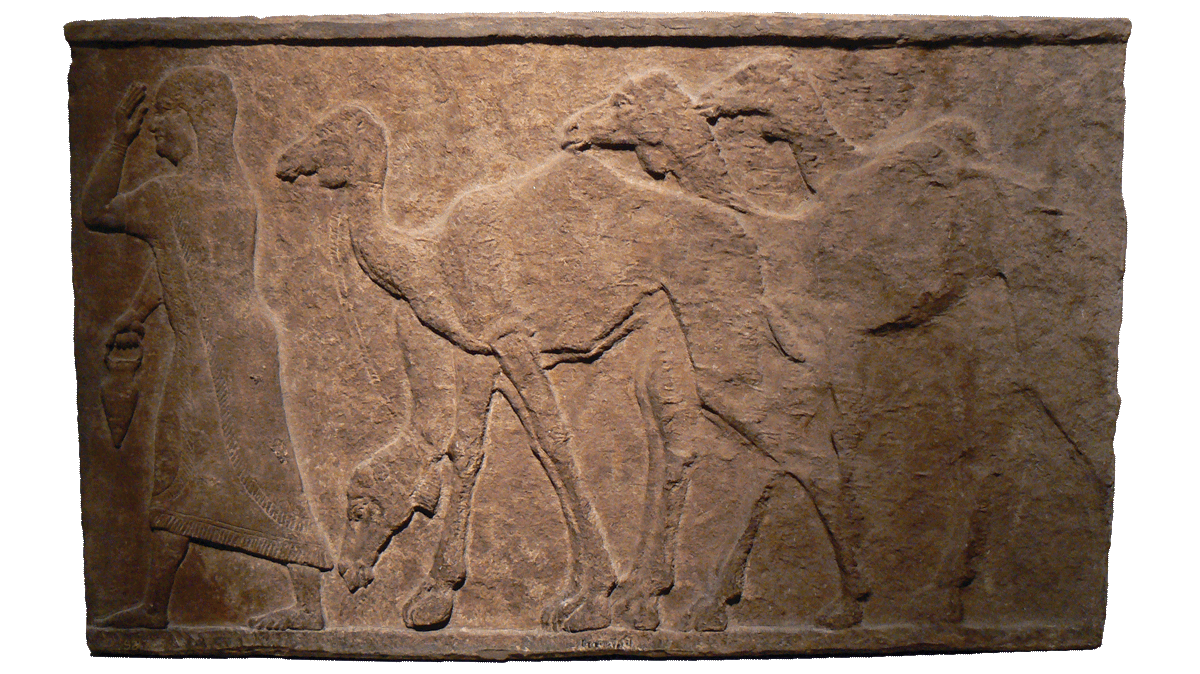Job
When Life Just Isn’t Fair
Central Teaching
When inexplicable tragedy strikes, we should trust in the sovereignty and character of God.
Memory Verse
Setting
There is nothing in the book of Job that tells us specifically who wrote the book or when it was written. The actual setting of the story appears to be quite ancient, perhaps during the patriarchal period and well before the settlement of Israel in the land. On the other hand, the book of Job appears to allude to other parts of Scripture (Gen. 1–3 and Ps. 8, for example), and the friends of Job seem to espouse a theology developed from Proverbs and Deuteronomy. This tends to point to a later date, at least for the composition of the book. A plausible setting for the composition of Job is during the reign of either Solomon (971–931 BC) or Hezekiah (716–687 BC), since both of them were very interested in wisdom literature. However, no one knows for sure.

Assyrian wall relief depicting captured camels. A Chaldean raiding party captures all of Job’s camels (1:17).
Message
The book of Job is not a list of theological statements that can be taken individually as doctrinal statements. It is a story. While it has a few narrative sections, most notably at the beginning and at the end, most of the story is told through dialogue. The context of each dialogue is important, and the statements of all those who speak must be placed in the overall context of the book. As with most stories, the point doesn’t really emerge until the end of the book.

“Does the eagle soar at your command?” (Job 39:27).
The book of Job deals with the difficult question of how we as wise, godly people are to handle great tragedies that seem unfair or don’t seem to have a logical explanation. Four interrelated theological conclusions emerge from the book of Job: (1) God is sovereign and Job is not; (2) God knows all about the world, while Job actually knows very little; (3) God is always just, but he does not always explain his justice to Job; and (4) God expects Job to trust in his character and his sovereignty when unexplained tragedy strikes.
Outline
Interesting Features
- Job is one of the few Old Testament books in which Satan actually appears.
- God himself appears in the book of Job, both at the beginning and at the end. Toward the end God delivers two long speeches to Job.
- Job challenges the way that God runs the world; God rebukes him only mildly and gently.
- God never tells Job what caused his time of affliction.

In Job 38–41 God speaks to Job out of a storm.
Connections
First, when trying to comfort our friends who are suffering from a great tragedy in their lives, we do not want to be like Job’s friends, who spend all of their time trying to understand why the tragedy happened instead of simply sitting with Job and hurting with him.
Second, we can apply the book of Job to our lives when inexplicable tragedy strikes us. We should remind ourselves that God is sovereign and we are not. Furthermore, God knows all about the world, while we are unable to see many of the causes and effects or spiritual battles taking place. Also while God is always just, he does not always explain his justice to us; therefore we often cannot understand it.
Finally, and most importantly, God expects us to trust in his character and his sovereignty when unexplained tragedy strikes.